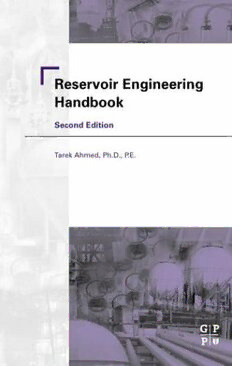
Reservoir Engineering Handbook PDF
1203 Pages·2002·8.437 MB·English
Most books are stored in the elastic cloud where traffic is expensive. For this reason, we have a limit on daily download.
Preview Reservoir Engineering Handbook
Description:
The job of any reservoir engineer is to maximize production from a field to obtain the best economic return. To do this, the engineer must study the behavior and characteristics of a petroleum reservoir to determine the course of future development and production that will maximize the profit. Fluid flow, rock properties, water and gas coning, and relative permeability are only a few of the concepts that a reservoir engineer must understand to do the job right, and some of the tools of the trade are water influx calculations, lab tests of reservoir fluids, and oil and gas performance calculations.Two new chapters have been added to the first edition to make this book a complete resource for students and professionals in the petroleum industry: Principles of Waterflooding, Vapor-Liquid Phase Equilibria.Covers reservoir fluid behavior and properties, including laboratory analysis and reservoir fluid flowProvides a guide to predicting oil reservoir performance through analysis of oil recovery mechanisms and performance calculationsExplains the fundamentals of reservoir engineering and their practical application through a comprehensive field study
See more
The list of books you might like
Most books are stored in the elastic cloud where traffic is expensive. For this reason, we have a limit on daily download.
